How to get a job as a ski or snowboard instructor
Want to find a snowboard or ski instructor job? Here is our ultimate guide to the instructor pathway.
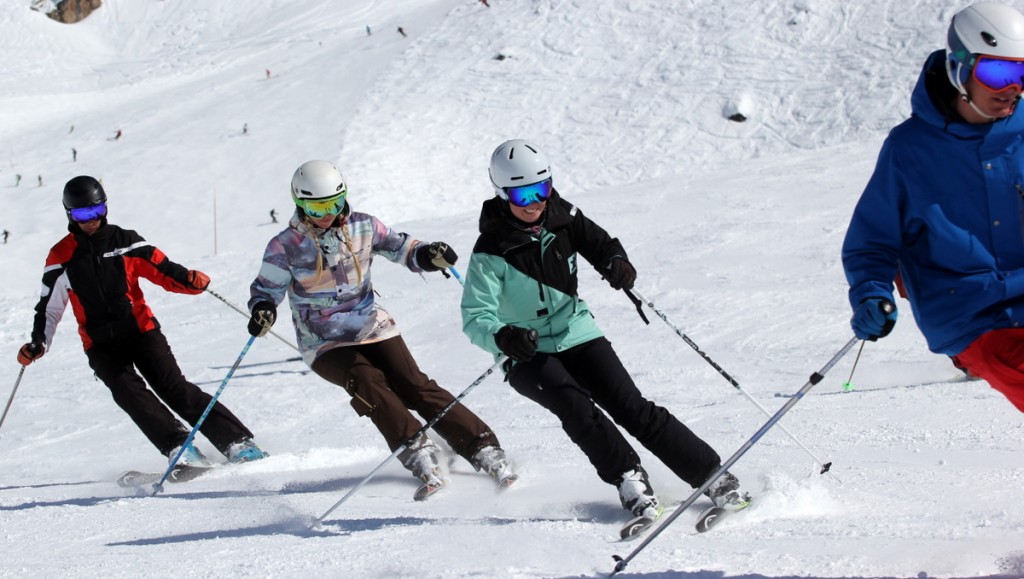
Not everyone is designed to be a data analysis or an account manager some of us are destined to do something different. The pathway to “ordinary” employment is well-documented but what about those extraordinary jobs that we aren’t told about at school where you get to live abroad, live a balanced lifestyle, while earning a decent wage and getting enormous job satisfaction, you know, like a ski instructor?
To make up for this glaring omission from careers day here is a guide on how to become an instructor.
Ski & Snowboard Instructor Qualifications
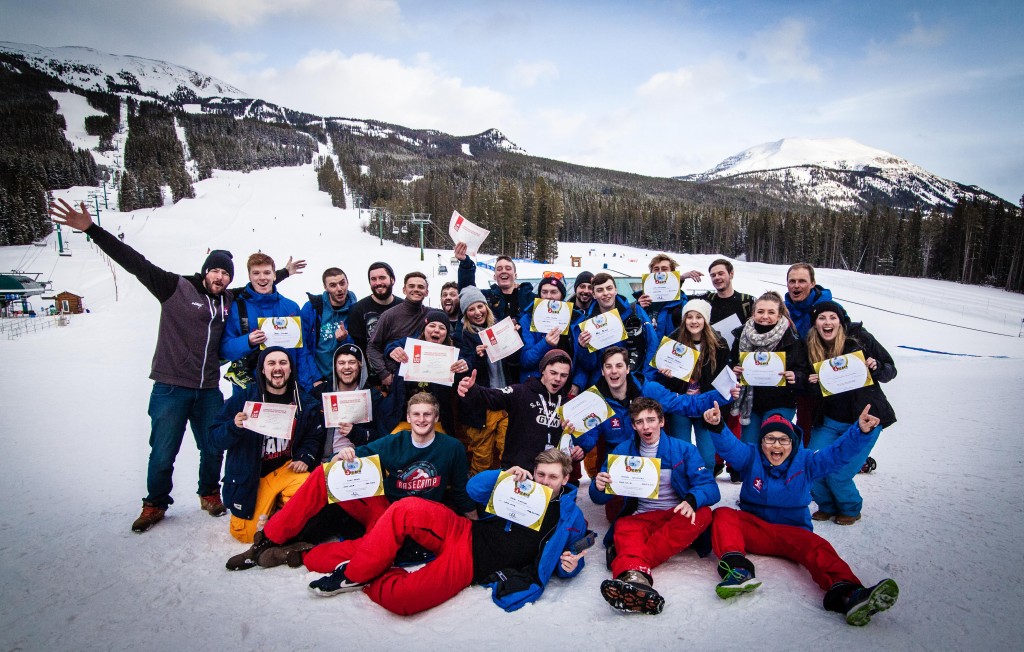
The first step is to choose a governing body to get your instructor qualifications through such as the UK’s BASI, the Canadian CSIA or the New Zealand NZSIA. When choosing which qualification you should consider where you plan on working and either get certified in that country or make sure that the association is a member of the ISIA, allowing you to instruct across the globe.
There are 4 levels of instructor that you can achieve and you can specialise along the way. Level 1 is sufficient enough to instruct in the country that issued your certificate where as a Level 2 will be recognised internationally but both are essential to start your career as a ski instructor. Once you have the taste for the lifestyle you may want to think about providing private lessons, teaching a specific discipline, coaching athletes, opening a ski school or leading backcountry expeditions, for this you will need to work towards levels 3 & 4 and take specific modules along the way.
Once you have the taste for the lifestyle you may want to think about providing private lessons, teaching a specific discipline, coaching athletes, opening a ski school or leading backcountry expeditions, for this you will need to work towards levels 3 & 4 and take specific modules along the way.
To become a high-level instructor you will need to invest in your future and it can be a comparable cost to attending university. Recently the qualifications you receive from BASI have been aligned witth the SCQF, (Scottish Credit and Qualifications Framework) making them comparable to GCSEs, A-Levels and Degrees.
Ski and Snowboard Instructor Courses
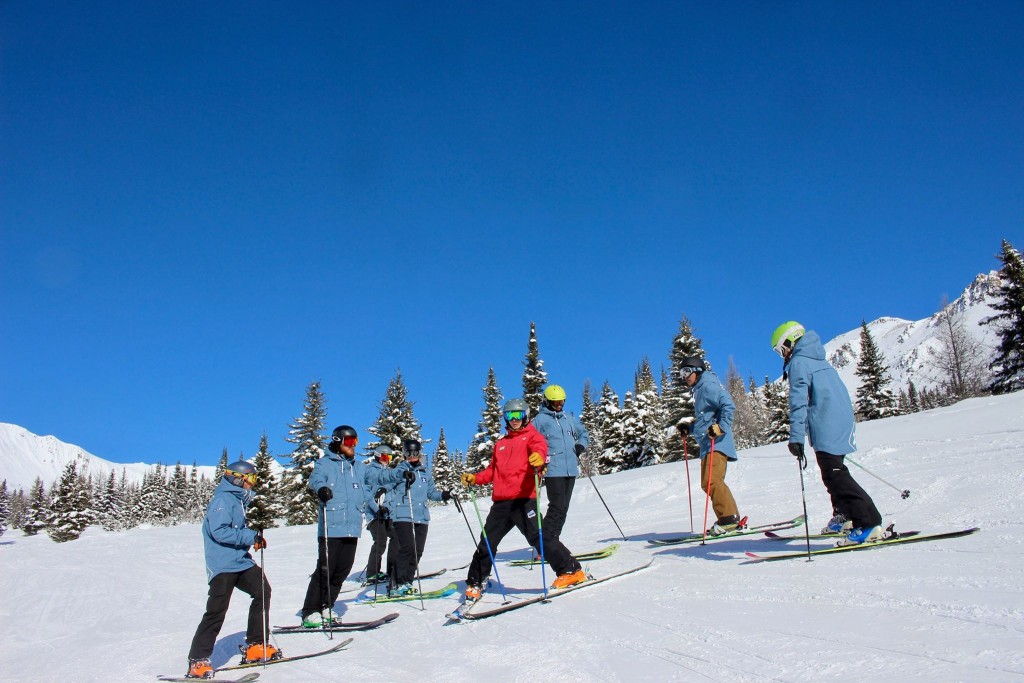
The easiest way to get on the dream bus to becoming an instructor is to get sign up to a ski & snowboard instructor course where you will receive all the training and support you need to pass your exams as well a place to live and in-house catering.
In many cases course providers, like Basecamp, will have strong links to local and international ski schools which makes finding that important first job much easier as the reputation built from previous alumni make you an attractive applicant.
Indoor and Dry Slope Ski & Snowboard Instructor Jobs
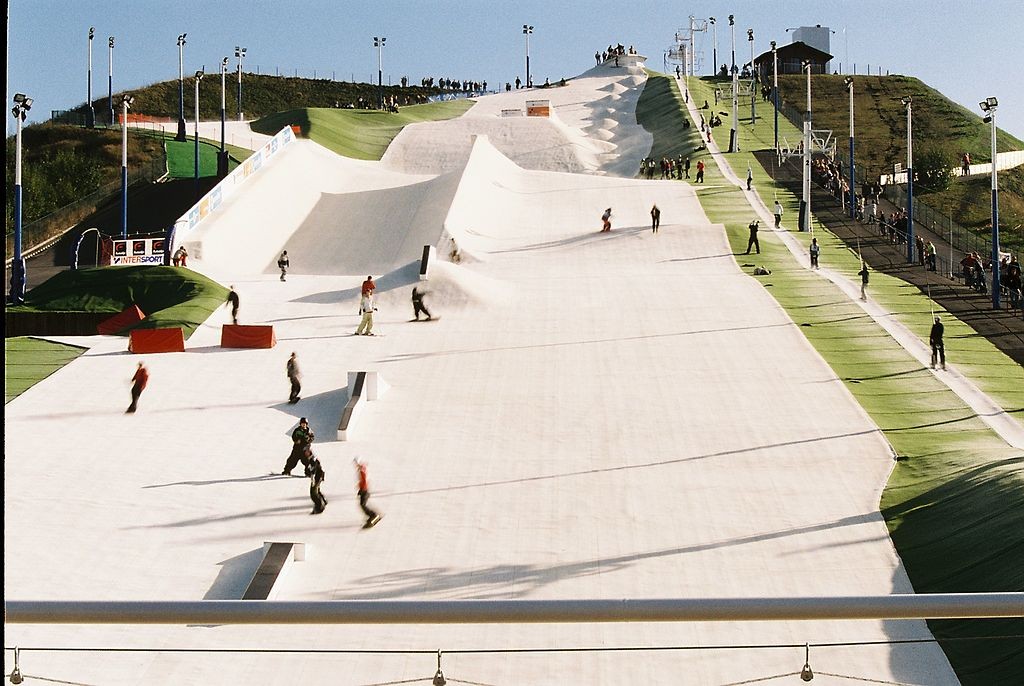
In the UK there are 100’s of dry slopes and a handful of indoor artificial pistes as well as the ski resort in Scotland that need snowsports instructors in the winter and the summer. These positions are ideal for gaining experience as well as filling in gaps in between seasons.
To find a job contact your local ski slope or keep an eye on the BASI jobs board.
How to get a ski or snowboard instructor job in Japan
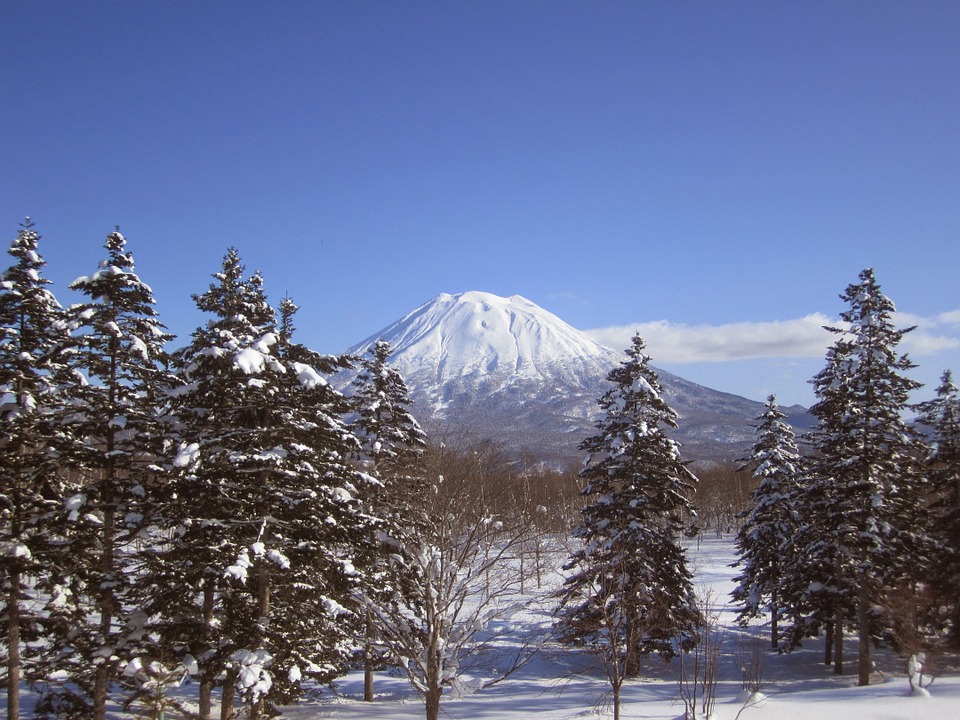
Many of our newly qualified instructors head to Asia where English speaking instructors are in high demand. The appeal is the endless powder and the opportunity to be immersed in a different culture while working in your dream job.
A level 2 internationally recognised qualification is required along with a visa permitting you to work in the country. There is a wide range of employers from small ski schools to international tour operators such as Club Med. Check out this blog post about available ski jobs in Japan.
How to get a ski or snowboard instructor job in Canada
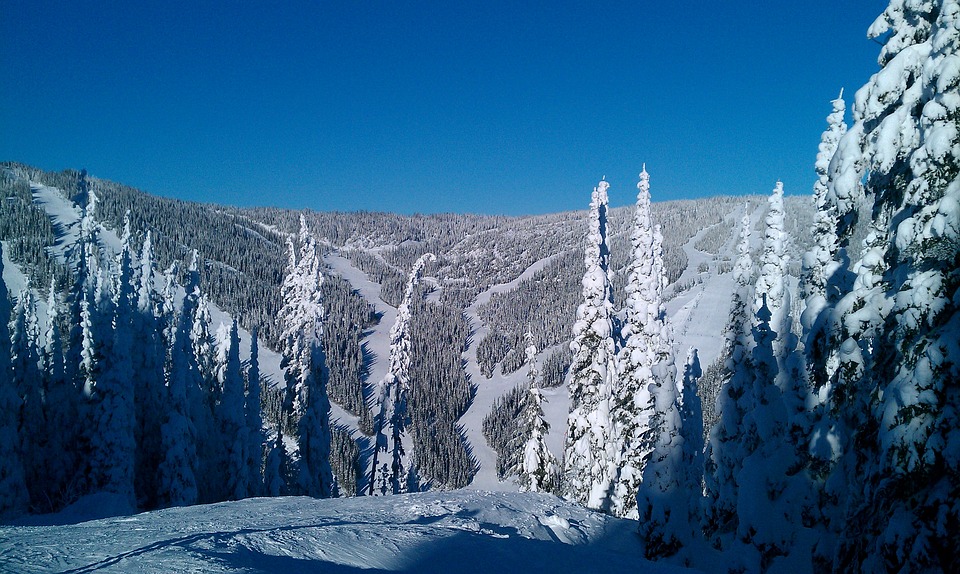 For us Brits working in Canada as an instructor is a dream come true as there are world class resorts, excellent snow conditions as well as a shared language. First, you will need to secure a permit to work in there, you can do this by obtaining a Working Holiday Visa. Rember you will need to plan this at least a year in advance. For a full rundown on the application process take a look at this guide.
For us Brits working in Canada as an instructor is a dream come true as there are world class resorts, excellent snow conditions as well as a shared language. First, you will need to secure a permit to work in there, you can do this by obtaining a Working Holiday Visa. Rember you will need to plan this at least a year in advance. For a full rundown on the application process take a look at this guide.
Once you have secured your work permit and have an instructor qualification you can start applying for jobs. Most resorts run their own ski schools and there are always plenty of jobs in the peak season. A lot of resorts hold employment open days for you to turn up to or you can apply directly online.
Many Canadian resorts provide the trainers for ski and snowboard instructor courses with the knock on effect that they are regularly offered a job as an instructor with the resort team as they are assured of the quality of the training.
As the season in Canada is one of the longest it is possible to qualify at the beginning of the season and then find work for the rest of the winter.
How to get a ski or snowboard instructor job in France
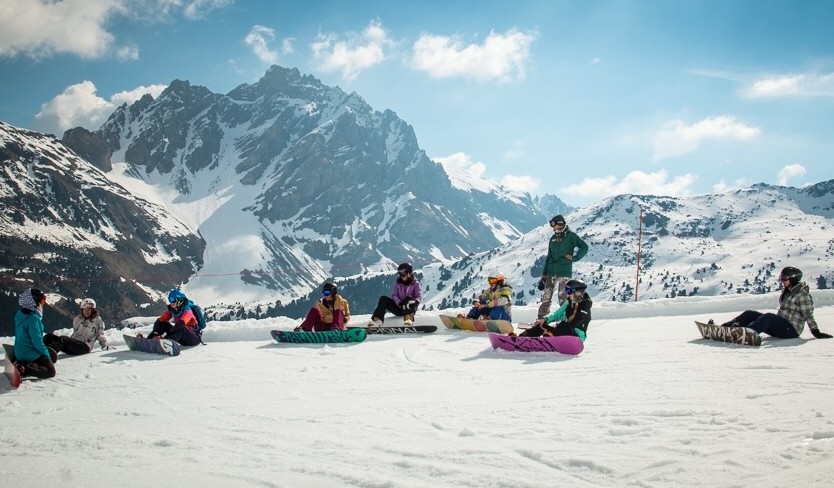
It can take a quite a while to reach the higher levels of instructor in France but if your dream is to teach in the French Alps and even get a coveted red ESF ski suit then it will all be worth it. If you are a European citizen then there will be no work permits required however, you will be expected to have excellent French language skills.
To start your journey you will also be expected to have a level 2 instructor certificate. From there you will need to progress on to level 3 & 4 as well as find a ski school to train with as well as pass the Test Technique and Eurotest.
It sounds a lot more daunting than it is. The key is to find a supportive school to work with. You will also get paid along the way as you start to take lessons and the likelihood is that the ski school will become your full-time employer as they will be invested in you and want you to succeed.
A great pathway to landing a ski instructor in France is to get on a BASI Level 3 course in a French resort that will have places in partner ski schools for you to complete the necessary work experience hours. They will also be able to help find you a permanent place for you to continue your journey.
Finding a ski or snowboard instructor job in New Zealand
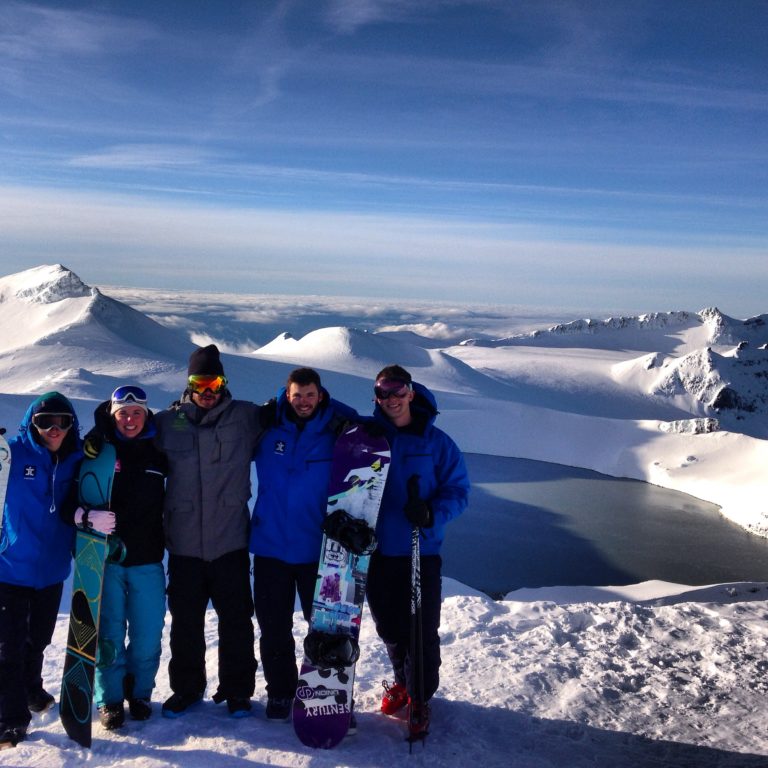
Working as a ski instructor in NZ is similar to the Canadian Process. You will need a working visa and to have the relevant qualifications.
As most ski areas run their own ski schools you can apply directly on their websites. There are fewer vacancies than in many countries which makes the application process very competitive so you will need to have a strong CV and great experience. In our experience, NZ ski schools prefer to take on newly qualified instructors if they have been invoved in part of the training program.
If you are not a NZ resident then a residential ski instructor course is a great way to get qualified and build a relationship with a ski school.
For job opportunities check out Mt Ruapehu on the North Island or www.nzski.com/employment for jobs on the South Island.
Finding a ski or snowboard instructor job in the rest of the world
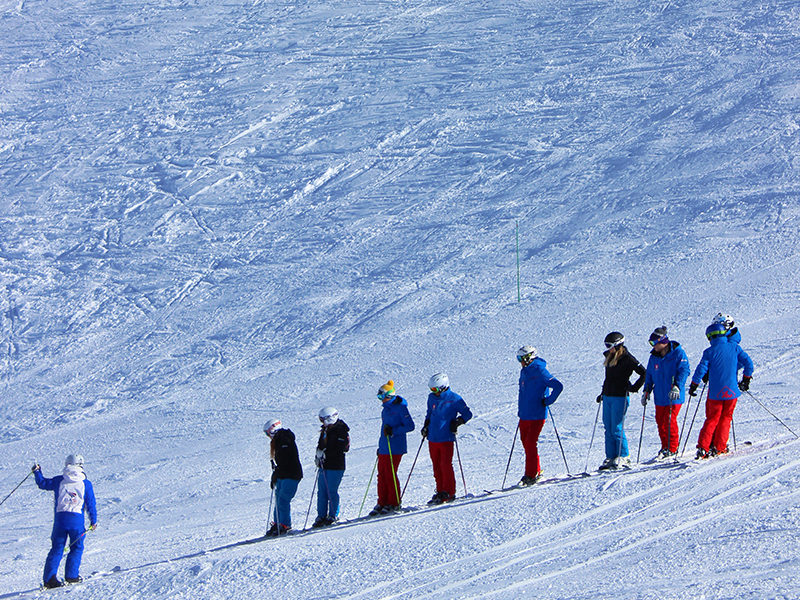
There are loads of opportunities for ski and snowboard instructors across the globe. Once you are qualified then the only thing that will stop you from working in different countries is the language barrier, Naturally the higher the qualification you hold the more desirable you will be to ski schools.
If you’re looking to work in countries with English as the first language then consider Australia or America. Both require working visas and you will find the majority of jobs advertised on the ski areas operator website. For Australia start at perisherjobs.com.au and for the USA try the CoolWorks job search engine.
The majority of other skiing nations are found in Europe and South America where qualification requirements are the same and the main difference is the level of language required which is often dictated by the language spoken by the clients.

